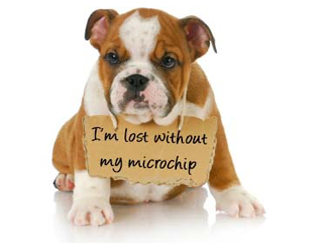We now offer Low Level Laser Therapy (LLLT also known as Photobiomodulation) Recently, we started offering…

Small Animal Newsletter June 2019
Cystitis in Cats
Is your cat urinating a lot more frequently than normal? Are they going little and often and sometimes seem in pain? Is there blood in their urine? Are they straining to urinate but very little or nothing is coming out? If this is the case, then it is possible that your cat might be suffering from cystitis.
What is cystitis?
It is inflammation of the bladder which in cats can be caused by three main reasons; stress or idiopathic (80-85%), crystals forming in the urine (10-15%), bacterial infection (5%). Overweight male neutered cats that live mostly indoors are at highest risk of developing cystitis but we do see this problem in slim cats and many females too. The inflammation in the bladder means t
Life threatening complications:
The most important thing to watch for is a male cat who is straining a lot to try to urinate and nothing is coming out. It is possible for cells from the inflamed bladder wall and small crystals to form a plug which can block the urethra. As the urethra in a male cat is much narrower than a female cat they are much more prone to this complication. At the New Plymouth Vet Group we will often have 1-2 cats in our clinic on any given day recovering from having a blocked bladder. We definitely see an increase in the number of cases after bad weather as cats who toilet outside hold on for longer due to the cold and the rain and this leads to concentrated urine remaining in the bladder for longer.
Treating a cat with a blocked bladder:
It is essential to unblock the bladder as soon as possible or risk the bladder rupturing or severe damage to the kidneys due to back pressure of urine on them from the bladder. To treat this condition the cat will receive a sedation or light anaesthetic to allow passage of a urinary catheter up the penis to unblock it and allow the bladder to empty. The cat will then spend 2-3 days in hospital on iv fluids and with the urinary catheter kept in place until it is safe to remove it.
How do I prevent or treat cystitis in my cat?

Some owners will be able to quickly identify the source of stress that flares up their cat’s cystitis such as having a cat in the neighbourhood that bullies them, a new baby in the family, going to the cattery, moving house. Other times the cause of the stress is not as obvious to us. If the stressor can be removed then that will make a difference but in many cases this is not possible. Also really important is to encourage increased water consumption to help make lots of dilute urine to flush out the bladder regularly. Special cat water drinking fountains can work well for some to get them to drink more water.
If you are worried that your cat has cystitis and especially if you have a male cat that is straining to pass urine but can’t then please contact the clinic to book an appointment with one of our vets.
Arthritis in older animals
Now that winter is here and temperatures have dropped you might notice your cat or dog has become stiffer when moving, lame or just reluctant to jump up and down onto things that they have always been with in the past. Just like with people, arthritis becomes more painful and therefore more noticeable when the weather is cold.
Important things to be aware of:
Just because your animal doesn’t cry or whimper when they move doesn’t mean they aren’t in pain. It is extremely rare for an arthritic animal to make noise when they are sore. This type of behavior in animals is restricted to pain due to sudden trauma (i.e. being run over by a car) or after surgery. Instead to try to work out if you animal is sore then watch closely how they move. Are they walking evenly on all 4 legs with nice long strides or do they favour one sides. Do they look a bit hunched through their back. Can they jump, run and turn quickly with no sign of hesitation. Do they get up from when they are lying down easily or is it a slow, deliberate process now?


If you think that your animal might be suffering from arthritis either book in to see one of our vets or alternatively ask to see one of our trained nurses for a mobility clinic.
Dr Nicola Williams BVSc
Microchipping
If your cat or dog goes missing you’re much more likely to be reunited if they have been microchipped. Unlike collars or tags which can be removed or lost, a microchip is a surgically implanted and is a permanent form of identification that can help vets, the SPCA and/or the council find an injured, stolen or lost pet’s owner.
Microchipping procedure
As the name would suggest, a microchip is a small device equivalent in size to a grain of rice. Our vet staff are experienced in implanting microchips and can perform the procedure on your cat or dog quickly and safely.
Why and when you should get your pet microchipped
Essential to linking the pet and owner, microchipping can be done during a consultation or in conjunction with a spaying or neutering. The sooner your pet is microchipped and registered, the sooner your pet will be linked to you.
Reasons to have your pet microchipped:
- It’s against the law for pet dogs over three months of age not to be microchipped
- Over 80% of lost microchipped pets are successfully reunited with their owners
- The pet owner’s details can be added to the local council database and New Zealand Companion Animal Register (NZCAR)
- Microchipping is a simple procedure
- Microchips generally last the lifetime of a pet
- Owners of injured pets can be contacted more readily, resulting in quicker treatment
For more information about microchipping check out the New Zealand Companion Animal Register here.
Staff Showcase – Wendy Dixon BVSc

Our Instagram Superstar
Look at that face! Doesn’t get much more handsome than this little lad. He was brought to is as a stray kitten and we were unable to locate an owner but recently he found a new family that fell in love with him.
Have you checked out our Instagram page yet? Updated daily – Meet our pet visitors and patients! Click here!
Disclaimer: This email contains comments of a general nature only and is not intended to be a substitute for professional veterinary advice.






